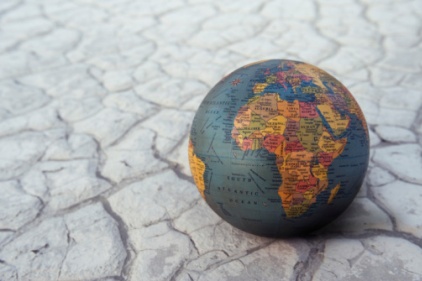Report: Climate laws inadequate to protect human rights

 The human rights of the world’s most vulnerable will be severely threatened unless urgent action is taken to improve access to justice and legal frameworks for people affected by climate change, concludes a new report by the International Bar Association (IBA) Task Force on Climate Change Justice and Human Rights.
The human rights of the world’s most vulnerable will be severely threatened unless urgent action is taken to improve access to justice and legal frameworks for people affected by climate change, concludes a new report by the International Bar Association (IBA) Task Force on Climate Change Justice and Human Rights.
The report Achieving Justice and Human Rights in an Era of Climate Disruption finds that, while climate change affects everyone, it disproportionately strikes those who have contributed to it the least and lack the resources to respond. The Report assesses the severe challenges currently facing national and international legal regimes which are poorly suited to provide legal remedies to those most affected, and outlines concrete recommendations for reform to create climate change justice structures that actively help protect and preserve environmental and human rights.
The report’s recommendations include:
- Legal recognition for a new universal human right to a safe, clean, healthy and sustainable environment;
- Creation of a new international dispute resolution structure for climate change issues, including a new specialist International Court on the Environment – and, in the interim, for States to recognise the jurisdiction of the International Court of Justice and, in arbitrations, the Permanent Court of Arbitration in the Hague;
- Greening bilateral investment treaties and free trade agreements to include state and investor party obligations to comply with environmental laws, climate change commitments and to provide precedence to environmental and climate friendly laws over conflicting trade measures;
- The issuing of World Trade Organisation guidelines reassuring states that trade-related measures motivated by climate concerns will not fall foul of WTO trading rules, and that economic subsidies be rebalanced in favour of climate-friendly technologies and against fossil fuels;
- Inclusion of a cumulative carbon budget in the United Nations Climate Change Multilateral Framework to achieve a 2°C temperature rise limit;
- Increasing corporate responsibility to recognise how climate change impacts on human rights and to implement policies to achieve greater environmental awareness and greater corporate/regulator liaison on group-wide greenhouse gas measurement, reporting and disclosure; and
- Using the UN Universal Periodic Review (UPR) process to highlight climate justice concerns for developing countries before a broad audience.
Through the more than 50 recommendations, proposed across short, medium and long-term timeframes, the Task Force calls on world leaders, policymakers, lawyers, corporations, trade bodies, human rights bodies, communities, scientists and individuals to take ‘joint, bold action’ to achieve climate change justice. The Report’s recommendations are the result of a comprehensive survey of domestic and international law relevant to climate change and of the ways in which these laws and legal systems impede or constrain the realisation of climate justice and human rights.
The Task Force, co-chaired by David Estrin, Chair of the IBA’s Environment Health and Safety Law Committee, and Baroness Helena Kennedy QC, Co-Chair of the IBA’s Human Rights Institute, emphasises that the time for action is now and that unless reforms are put in place, current effects – including increased incidence of worsening droughts, hurricanes and heatwaves – are likely to be ‘dwarfed by the future consequences of climate change’. These include rising sea levels, unprecedented weather disasters, depleted freshwater reserves, vanishing ecosystems and food supplies, as well as risk of serious social disruption, lost livelihoods, mass displacements of peoples, and loss of cultural, family, community and language continuity.
IBA President Michael Reynolds said, ‘Existing legal mechanisms addressing mitigation, adaptation and remediation of climate change are failing to cope with the scale of the global issue and its wide-ranging impact on individuals, leaving climate change justice issues unaddressed. That climate change raises concerns of ethics and justice is now without question.’ He added, ‘The significance of Achieving Justice and Human Rights in an Era of Climate Disruption lies in how it assists with moving from understanding to action. The Task Force points the way forward in translating climate justice into effective legal justice, with a series of proposals that are guided in scientific consensus, in the reality of international climate policy and in the urgency of real life impacts on individuals and communities.’
Click here to download the report: Achieving Justice and Human Rights in an Era of Climate Disruption. (See pages 1–31 for the Executive Summary, Recommendations and Action Matrix).
The International Bar Association (IBA), established in 1947, is the world’s leading organisation of international legal practitioners, bar associations and law societies. Through its global membership of individual lawyers, law firms, bar associations and law societies it influences the development of international law reform and shapes the future of the legal profession throughout the world.
Looking for a reprint of this article?
From high-res PDFs to custom plaques, order your copy today!




